
Tech Diva Biz Talks
Ready to mix business with brains, tech, and just the right amount of side-eye? Then welcome to Tech Diva Biz Talks (formerly the Business Chop), the podcast where strategy slays, tech behaves (mostly), and your host, Audrey “Tech Diva” Wiggins, says what everyone else is thinking about marketing and entrepreneurship.
We’re spilling the tea on business blunders, brand glow-ups, digital do-overs, and how to stop ghosting your website. Interviews? Sometimes. Sass? Always. Tech working better for your business? That’s the goal.
Subscribe now to catch every episode and exclusive content.
Want to be a guest on Tech Diva Biz Talks? Send Audrey Wiggins a message on PodMatch, here: https://www.podmatch.com/hostdetailpreview/audreywiggins
#LetsTalkTech #Entrepreneurship #PublishedAndPaid #Authorpreneur #Storytelling #EntrepreneurLife #MarketingMoves #SuccessBlueprint #StartupHacks #KeepItLegal #ScaleYourBusiness #TechForBiz #SmartMoney #BrandingBoss #Innovation #HustleSmart #Mindset #DigitalMarketing #ExitStrategies #SuccessionPlanning #VisualStorytelling #TeamWork
The Tech Diva Biz Talks podcast is a production of Altogether Marketing LLC founded by Audrey Wiggins, Chief Brand Strategist aka Tech Diva. Visit https://altogether.biz for more information.
Tech Diva Biz Talks
From Ice Rinks to Boardrooms The Entrepreneurial Journey of Lesle Lane
In the ever-evolving world of photography, adapting to change while honoring tradition is a delicate balance. This episode of Business Chop features Lesle Lane, a third-generation photographer who has successfully navigated this challenge, transforming her family's legacy into a thriving modern commercial photography brand.
Lesle shares her journey from competitive ice skater to pioneering businesswoman, offering valuable insights on resilience, innovation, and the power of embracing new technologies. Her story is a testament to the importance of adaptability in entrepreneurship, especially in creative fields.
Blending Legacy with Innovation
Lesle's narrative highlights how she:
- Transitioned from film to digital photography
- Invested in cutting-edge equipment to stay ahead of the curve
- Integrated AI into her workflow to enhance efficiency and creativity
Lessons in Leadership and Team Building
Drawing from her experiences, Leslie discusses:
- The challenges of leading a team at a young age
- Her unique approach to building a flexible, results-driven team in the gig economy
- The importance of showing appreciation and fostering team spirit, even with contractors
Nurturing the Next Generation of Creatives
Lesle's passion for mentoring shines through as she emphasizes:
- The balance between artistic talent and business acumen
- The value of under-promising and over-delivering
- How to maintain professionalism in challenging situations
Key Takeaways for Entrepreneurs
- Embrace change and new technologies in your industry
- Build a support network to help you through t
Start for FREE
Designrr for eBooks, Blogs
Create eBooks, Blogs, Lead Magnets and more!
Riverside.fm Your Own Virtual Studio
Professional Virtual Studio
Altogether Domains, Hosting and More
Bringing your business online - domain names, web design, branded email, security, hosting and more.
Digital Business Cards
Let's speed up your follow up. Get a digital business card.
Small Business Legal Services
Your Small Business Legal Plan can help with any business legal matter.
Looking for Podcast Guests?
Keep your podcast schedule full with quality guests from PodMatch.
Mens and Womens Hats
Since 1972, American Hat Makers has been dedicated to the art of fine hat making.
Disclaimer: This post contains affiliate links. If you make a purchase, I may receive a commission at no extra cost to you.
Want to be a guest on Tech Diva Biz Talks? Send Audrey Wiggins a message on PodMatch, here: podmatch.com/hostdetailpreview/audreywiggins
To work with Audrey schedule a breakthrough/discovery session.
[00:00:00 - 00:02:17]
Our guest today is Lesle Lane and she is the founder and lead photographer of Studio 13. She is a third generation photographer with deep roots in the industry, transitioning her family's legacy business into a modern, thriving, thriving corporate and commercial photography brand. As one of the few women in commercial photography in the Indianapolis area, Lesle's story is one of pioneering in both business and photography, helping companies enhance their brands through high quality visual content. And we're going to learn a little bit more about Lesle on the other side of this message.
Let's finish up with Lesle and hear from her. So she is passionate about mentoring freelancers, empowering the next generation of creatives, and opening and openly sharing her knowledge to help others thrive. A former competitive ice skater and coach, she draws parallels between discipline of sports and the business world, offering unique insights on mindset and leadership. Lesle Lane, welcome to the Business Shop.
[00:02:17 - 00:02:19]
Oh thank you so much. I'm excited to be here.
[00:02:19 - 00:02:27]
So before we get started and learn from you, as we sit at your feet, you want to share a couple of personal fun facts about you with the Chop Squad?
[00:02:27 - 00:03:16]
Sure. So like you said, third generation photographer. My grandfather was kicked out of his home as an eighth grader because his stepfather tried to kill him with a garden hoe. And so at in those days you didn't have child protective services and so the only people that would take him in were the nomads that would go from town to town. Well that's where photographers did their work. They went from town to town and so that's how we got started as a family in the photographic industry. And it went from my grandparents to my mother and my father, and then my mother and my stepfather here in Indiana, and now me. Unfortunately, there won't be anybody after me in the family, I don't think, unless one of my gorgeous grandchildren decides to join, join me. But it's a great legacy and it's just so much fun to represent my family.
[00:03:16 - 00:03:20]
That's fantastic. And I hope one of those grandkids do take you up on that.
[00:03:20 - 00:03:21]
Me too.
[00:03:22 - 00:03:48]
Thanks for, for lightening up the load here. Before as we get started, we talked about the heritage and, you know, in the innovation. I'm gonna stick there just for a moment. So your business has a deep family roots spanning three generations, as we've already alluded to, yet you've evolved it into a modern commercial photography brand. Could you walk journey of blending that family legacy and fresh contemporary approaches?
[00:03:48 - 00:06:45]
I sure can. And you know, just for all my other entrepreneurs out there, it was not a pretty ride as many times. It's not. And so I just want to lay out a word of encouragement to all of your listeners right now. If you're at a low point, you're just one step away from a high point. Don't forget that. So my grandfather was a pioneer, not only in his, you know, catastrophic beginnings, but film was making a transition from black and white film to color film when he was in his prime. And so instead of shying away from that change, he embraced it and then actually opened up a color laboratory with my mom and dad transitioning seamlessly.
And then my stepfather and my mother were in film, but it was starting to transition in digital. And so even as a young person, I knew that that transition coming. And so when I was 27 years old, it came. And I was in the midst of six months pregnant with a baby, and bought my first digital camera because, hey, what, what can't you do when you're 27 years old? And so at the time, it was $29,000 for me to purchase my first digital camera. And so I jumped into that and my, my mother was behind me because she was a pioneer. And so all of these women in my family, male entrepreneurs, they're not AF change. And so even though I had some missteps in the 2009, the big recession that came through, I got divorced. I had to start all over again. It didn't stop me from embracing where photography is going. So being that I work with corporations directly, business to business, I think that it gives me a Little bit more sustainability because I'm not worried about extra income as much as, you know, portrait and wedding photographers are trying to take people's description discretionary spending where most of the time the marketing and advertising is budgeted for. And so that does make me a little bit more resilient.
But as we're moving on through photography and seeing where AI is taking us. So here we are at another transition in my career that AI is really starting to take off and I am studying it and I'm understanding it and for now, who knows what the future holds. AI is being integrated into everything and it's making me a better photographer. It's not making me so that they don't need me. And I feel like that at this point in time, AI is a partner in my business. It is helping me be more efficient, it is helping me be more creative and it's helping me achieve my clients needs most of the time more efficiently. So that's just, you know, kind of a very quick Google eye view of where I've come from and where I see the future going with, you know, introducing AI into my business.
[00:06:45 - 00:07:01]
With that, let's think about mentoring and inspiration. You know, as you're passionate about mentoring empowering freelancers and emerging creatives, what are some key lessons or approaches you found most impactful when guiding others in photography and into the business realms?
[00:07:02 - 00:08:02]
There's two things about the photography business. Most artists are terrible at business and then the people that are good at business aren't very good at the artistry. So finding that middle ground where you deliver what you promise to your clients, I'm constantly teaching that to my younger photographers. You have to, you have to under promise and over deliver, always making sure you invoice your jobs. Can't get paid if you don't send the invoice. And this may sound very basic to some of your listeners, but I am hearing it as a constant complaint with people in my field. Customers saying that the client that the photographer won't deliver their images at all sometimes, or maybe it's just they deliver them very slowly. And so talking to my younger students and taking them on jobs with me, I'm constantly taking them aside and saying, do you hear what I'm saying to the client? Do you hear the promises that I'm making them? I will be delivering on that.
[00:08:02 - 00:08:24]
Very important, very important. What about even like the sports discipline in business you draw, you know, you drew the parallels between your background as a competitive ice skater. I think that is absolutely phenomenal. And the discipline needed in business. Can you expand on how that that athlete minds, athletic mindset influences your leadership style and day to day operations of Studio 13?
[00:08:24 - 00:10:19]
I certainly think that any kind of high level sports brings things to the table in business. But as an individual ice skater, and let's be clear, I never had the Olympic talent. I had the Olympic heart and I really wanted to be there, but I did not have the Olympic talent. And it was a female driven sport. And so I feel like that being a strong woman certainly started from being in a, a female dominated sport. But that ice was really unforgiving. You fall on that piece of ice and it, it was unforgiving. And so my coach, my, my very special coach and mentor for a long, long time, she used to always say, you cannot cry when you fail. You can't, you can't cry when you fail. You suck it up. Well, because a lot of times the judges were there so you, you fail at a test or maybe you didn't skate well, or most especially in ice skating, you don't win when you should because it's so subjective. It's gotten less subjective now, but the judges, a lot of time would want to have a conversation with you when you were done. And when you're done competing and you're not happy with your results, that's going to be the time where a judge would want to go face to face with you and you got to hold it together.
And I feel like business is the same way. You're not going to win every, you're not going to have your best foot forward every day. And when your client comes to you, the goal is to leave that conversation with your relationship with your client being stronger, not weaker. And so the same thing happened in skating. And so I just really see that strength and power that skating taught me to go home and wallow when nobody can see you. But when you're in business, you have to stand there, take your knocks, accept responsibility for whatever you did or did wrong, or maybe you could have done better and then go out next time and achieve.
[00:10:20 - 00:10:38]
Okay, so let's get into brand strategy and visual content. So your clients range from global manufacturers, local businesses, all sharing the need for high quality, brand focused media. How do you approach developing a visual strategy that stays true to each client's unique brand identity?
[00:10:38 - 00:12:15]
Yeah, so normally the clients have already met with their agencies, brand strategy and those types of things. And so they come to me and they say, here is the visual we need to portray. So yesterday I was doing a magazine photograph for a university of Indianapolis here in town. And the person that we were photographing is making a difference in the world by helping immigrants find a way to navigate these waters right now. And they were trying to portray him not as a really, really happy guy because now it's not a really, really happy time for him to be doing his job. And so we had to create that visual for them while still knowing that they wanted that magazine to be read. And so I had to take that along with the location that we were at and create a story. And so that a lot of times, whether it's a magazine or a corporation that I'm just following their need, maybe it's for transparency. I have a client that doesn't like a lot of editing on their pictures because they want their people to be authentic. They want, when they look at a picture of a person, they want to make sure it does not look anything like AI. They want it to be genuine. We do product photography, same thing. We're shooting a product that has to follow the truth and advertising laws that this is what the product genuinely looks like. So it changes. That's what I love about what I do. It changes based on who the client is. It changes based on what I'm shooting and what the end result is.
[00:12:15 - 00:13:33]
Yeah, I just, I loved everything you said right there because I just. That just opened your. Opens a person's eyes to. You aren't just picking up your device and shooting something that you like and that you perceive. You know, this is for when you're working for a client and you're like you say you're trying to produce in a portray a certain image or a certain feeling or, you know, emotion to come across. And I think that for you to be able to do that, I think is just absolutely awesome. So let's move on to leadership and then and team building. So over the 30 years in industry, you've built and led diverse teams of photographers and associates and you talk about your, your interns or students that you know that you're training now. What's your philosophy on assembling and nurturing such a creative, results driven team?
[00:13:33 - 00:15:18]
So again, to all of you out there, I failed at my first attempt at this because I took over my business at 21 years old and I had a team of seven people that were all older than me and Lord knows I had no experience doing it. So over the years I, you know, I changed to a single producer. That was me. And now I've changed again to building a team. And what I've done in my industry is that Nobody is a W2 employee. So we are, I am the only W2 employee. Everybody else is a contractor, a 1099 employee. And. And I'm leaning in to this gig economy where people are wanting to work the way they work, they want to stay at home the way they want to stay at home. Or like in photography, they want to shoot what they want to shoot. And so many of the photographers, like I said, they don't like that business aspect. And so I go out and I find the work, I assign it to one of my photographers, I invoice the work and then I get the work work. I even get the images edited for the photographers so all the things that photographers don't like to do is taken off the table so that I can choose the photographer that I know has a passion for that kind of work and they don't have to do any of the stuff they don't like to do.
And then I make sure that I bring us all together as a team at least once a year. I'd love to do it more, but sometimes my schedule just doesn't allow it to show my appreciation for my team even though they're not W2 employees. Because without them, my business doesn't grow, my business doesn't perform. And I treat them all like they are W2 employees. And I make sure they know I am grateful for all the services that they provide my clients and the way that they represent me out in the community. So that's how I do it.
[00:15:18 - 00:15:55]
That's such a great lesson that you showed us in terms of leaning into the gig economy so many times we're solopreneurs and we really need to delegate. So get some stuff off our plate and give it away. But we don't understand like, well, do I have to hire somebody? You know, or then they, they think they're hiring somebody, then they get in trouble, tax wise. But, but you're right, we all want to have our freedom, but we want to create at the same time. And it's good to be able to be part of a team without having to be part of that, that structure, like team. So that, that's a good Lesson for us to learn from you as well, how to bring on team members without them being W2 employees. That's awesome.
[00:15:55 - 00:16:47]
The responsibility of that can be so burdening for even a solopreneur. Or maybe you're young, you're doing it as. And it was actually my daughter that taught me. She came into my business at a pivotal time and said, you cannot do it this way anymore. I will not watch you destroy yourself because you're working too hard. And she helped me transition into this, where I've now got an administrator, that administrator has three children and she stays home with her kids and she administrates for me part time. I have a social media person, stay at home mom. I have a salesperson. She's not a stay at home mom, but she's. She keeps her kids every other week and so on the off week, she sells for me. So there are ways to work around it, to give ourselves the relief we need without the added pressure of being responsible for somebody's 40 hours a week.
[00:16:47 - 00:17:15]
So Chop Squad, I know we are at the end, but take note of this for real because that, that's real important, I think to the success of everyone involved for sure. So let's look at personal passions and future plans. So outside of photography, you've mentioned enjoying time on the leg, being a ban grandkids. And, and how do these personal passions and family experiences shape your approach to life and business? And where do you see Studio 13 headed next?
[00:17:15 - 00:19:03]
Well, my husband has been a game changer. I have to be and I'm not because he'll never listen to a podcast that I'm on. I've asked him to and he just doesn't. But he has been a game changer. Having a good partner and fully supporting you the way he supports me, it gives me the freedom to do all the things that I need to do. So I have to give him a shout out. And the that he got. He has a boat. That's how you know, he said, I'm glad I met you in the winter because if you would have seen my boat first, you would have fallen in love with my boat. And so we do, we have a great time together and we, we try to make sure that we, we carve out that time together.
But my grandkids, holy cow, are they fun. They keep me so excited. I am grateful that my daughter gives me ample opportunity to keep them and be with them and to be a part of their life. And you know, these young parents don't like we did. You know they don't do it the way we did. And so I'm having to learn how to be a gentler parent because, you know, you're a strong business person. I was an ice skater, which made me strong. I disciplined my children very strongly. And now they're like, no, mom, you have to say, be careful. You don't say, you know, you just say everything different and softer and, and you don't say, no. You say, no, thank you. And I'm like, oh, okay. And so I'm learning to be a bit, gentler version of Leslie and I am loving every minute of it. My granddaughter is a spitfire. She's three and a half years old and she. We call her the toddler tornado. And then my little one and a half year old grandson is the sweetest little thing. He's just toddling around and we are having a blast. And it just, it makes me, it makes me a better person.
[00:19:03 - 00:19:13]
That's awesome. I love it. My goodness. So, Lesle, where can we find you, get in touch with you or, you know, work with you? What are those information there?
[00:19:13 - 00:19:49]
Absolutely. So you can reach me on my website, studio13online.com. It not only has all of my work, but we have a lot of educational pages on there about photography. We're also expanding in the next month or so to add marketing content for education. And so we're just trying to be a resource for people, not just a one stop. Here's, you know, here's photography. So I'm at my website, studio13online.com. You can see me on LinkedIn. Lesle Lane. It's just L E S L E, L A N E. And also on Instagram as well. Studio 13 Indy and Lesle Lane.
[00:19:49 - 00:19:58]
That's why I definitely, Chop Squad, you want to get in touch with Lesle, follow her and, and plug into her work if you need her services. Does you or your team work outside of Indiana?
[00:19:58 - 00:20:19]
We do. We travel nationwide. We would travel globally if anybody wants us to. I do have a passport and so we go to a lot of places. I'm due in April and May to be in Ohio and North and South Carolina, so anywhere you need us to go. We spent January in Denver, so we just. Whatever needs to be done.
[00:20:19 - 00:20:24]
All right. Now I'm going to be nosy. What part of Ohio are you coming to?
[00:20:24 - 00:20:36]
We're going to be in Cleveland and Columbus right now in April. But then I think I've got other stops in the summer for architectural photography. But yes, in April I'll be Cleveland and Columbus.
[00:20:37 - 00:20:46]
Okay. I'll try to find you. I'm just out of Cleveland. I'm in Mayfield. I don't expect you to become me because you'll be working, but somehow we have to connect.
[00:20:46 - 00:20:47]
Absolutely.
[00:20:47 - 00:21:01]
Yeah, definitely. I'm glad that I. That I asked you that. With that said, Lesle, what other advice? If you wanted to sum this up, nugget that you want to leave us with, you gave us a lot along the way. But what would that final piece be?
[00:21:01 - 00:22:04]
You know, I feel like that my life and business has been stumbling to success. Does that make. Does that make sense? I had. I had so many points in my life that tripped me up. Up. I thought about quitting. I thought about giving it up. I even went back and got my Masters because I was going to go get a real job. Now the good news is getting your masters. If you want an education, get it. Because it gave me a lot of confidence to go back and get my MBA and know more about running my business. I'm grateful I did that. But the real difference were the people that wouldn't let me give up. If you don't have people surrounding you that are building you with positivity and that are helping you when you're stumbling, you need to find those people. Because I would not be here today without my mother, my best friend, several friends along the way, and then the last 11 years with my husband. You've just got to have people with you because being successful in business is not linear. Anybody that tells you it is has never run their own business.
[00:22:04 - 00:22:16]
Thank you. Thank you. Chop squad. Take that to heart. I know I am. And let's. Let's move forward. And understand we can't do it alone. Thanks, Lesle. I really appreciate your time today.
[00:22:16 - 00:22:17]
Thank you.
Podcasts we love
Check out these other fine podcasts recommended by us, not an algorithm.

Podcasting Made Simple
Alex Sanfilippo, PodMatch.com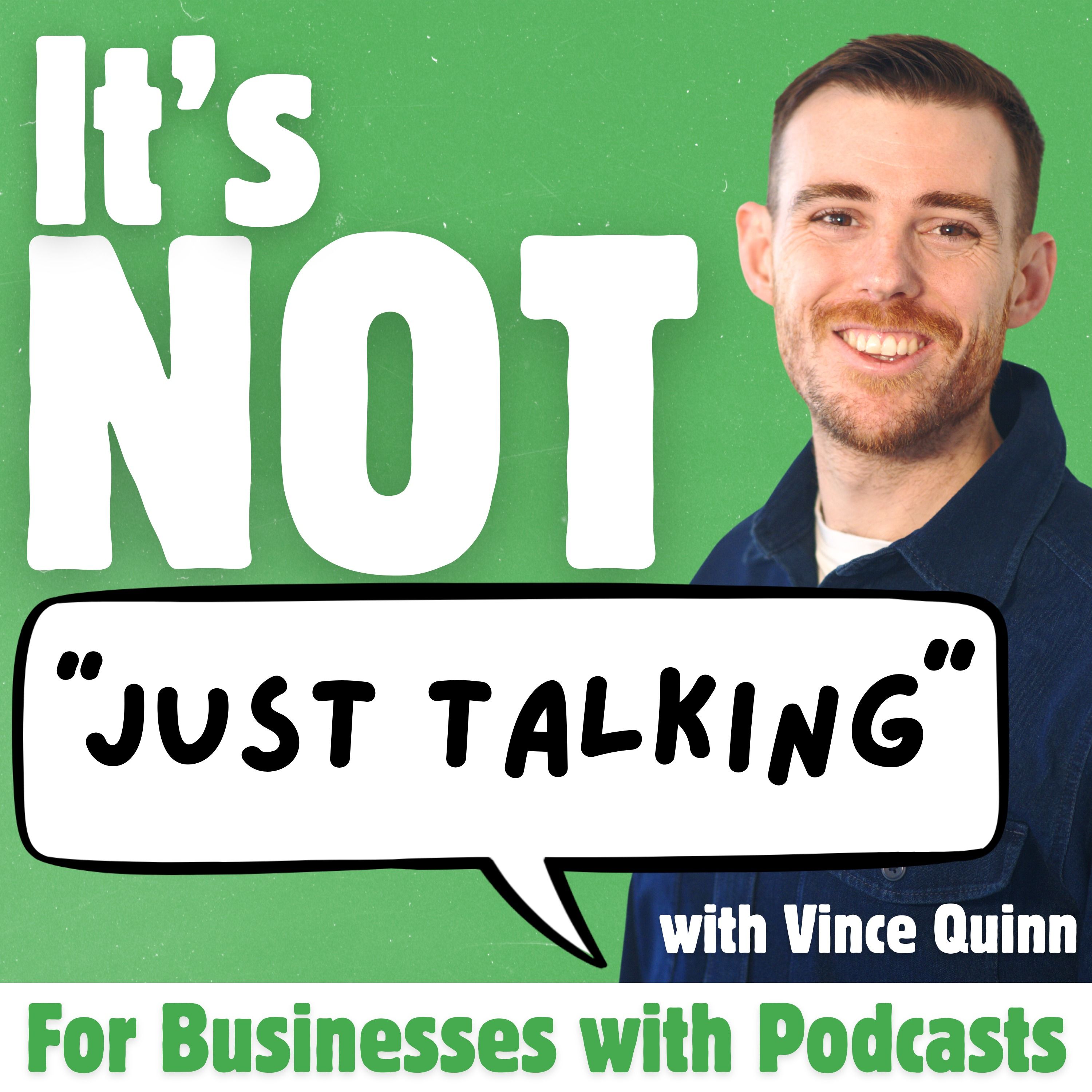
It's Not Just Talking with Vince Quinn
SBX Productions, Vince Quinn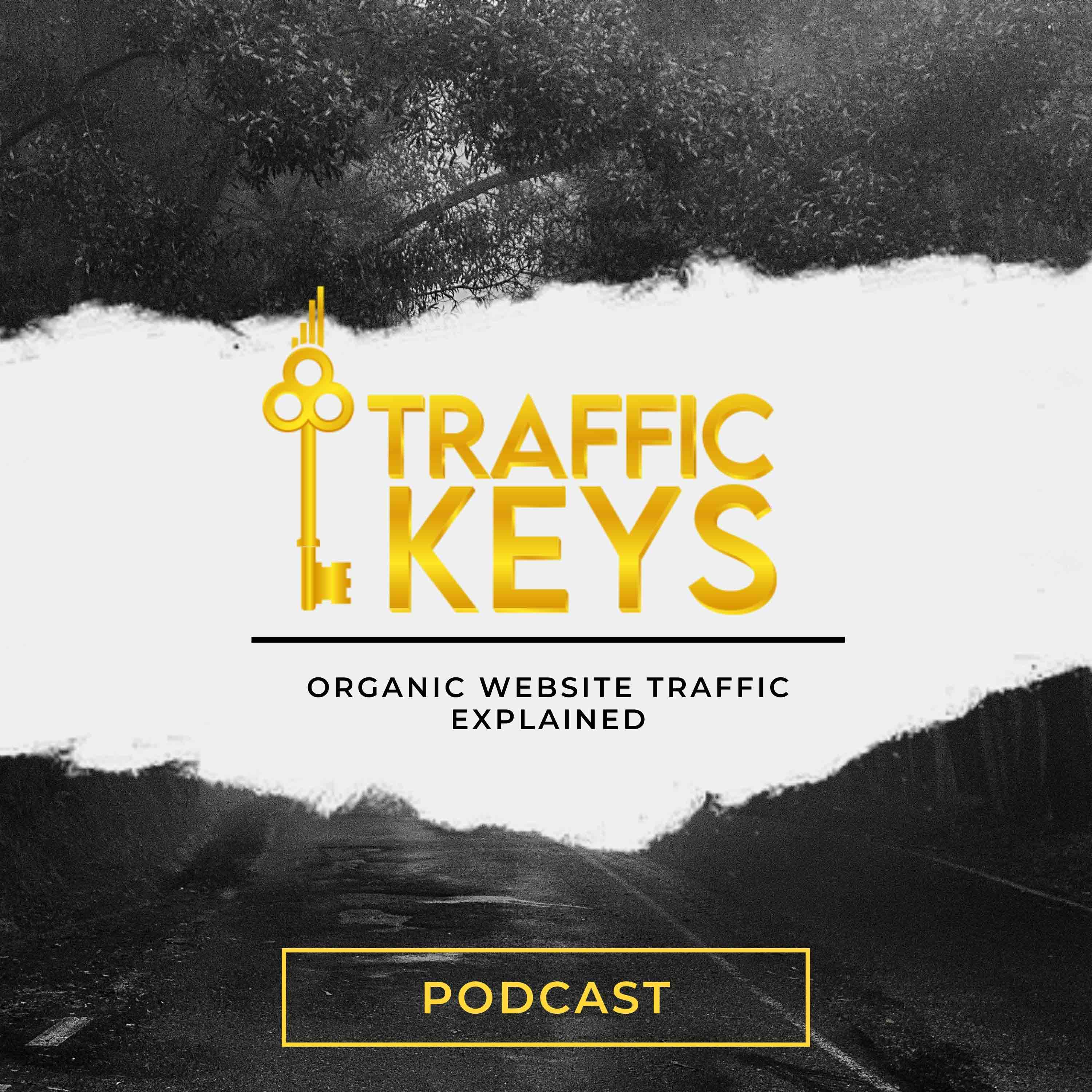
Traffic Keys Podcast
Atiba de Souza
I Have A Podcast by Vinnie Potestivo
Vinnie Potestivo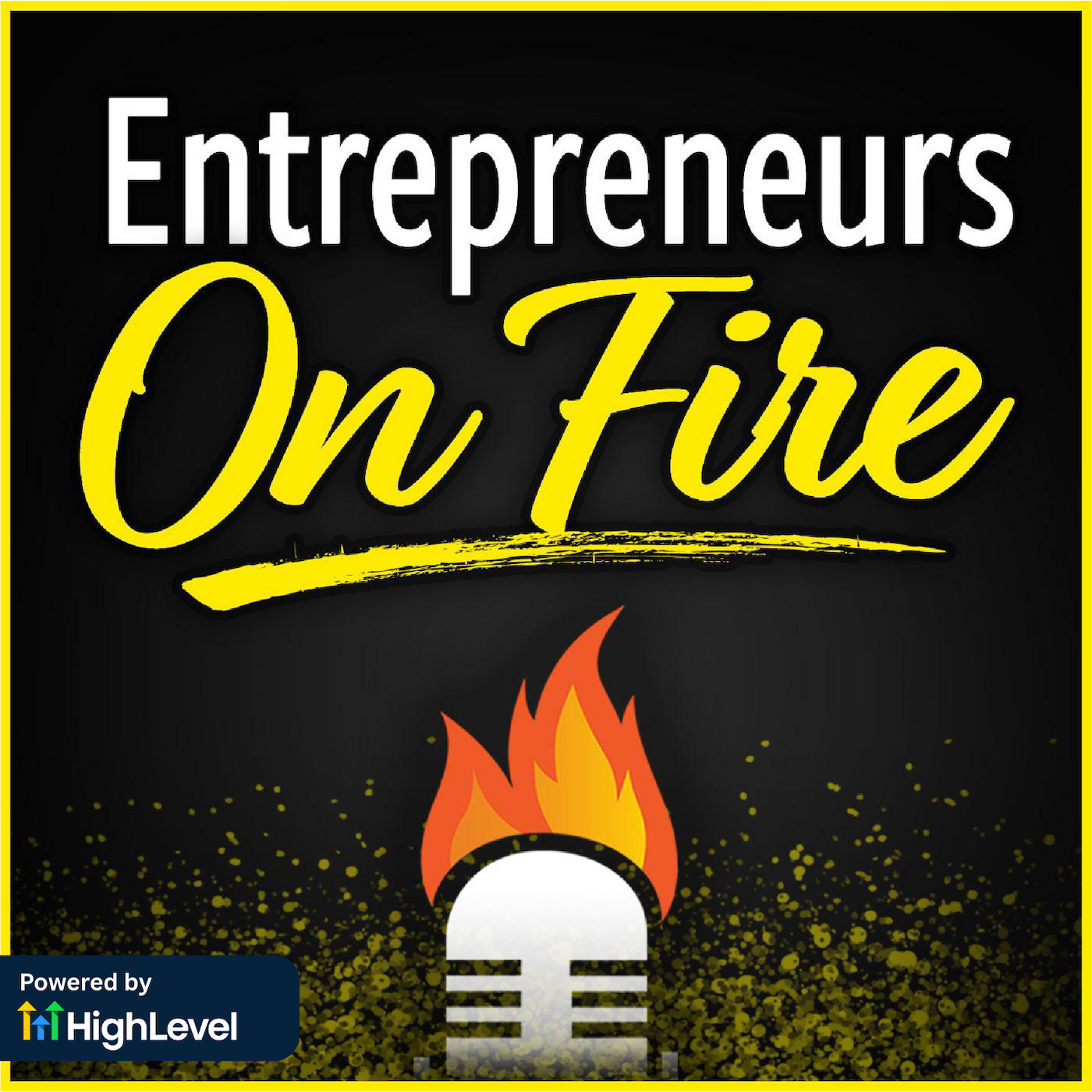
Entrepreneurs on Fire
John Lee Dumas of EOFire
Imperfect Marketing
Kendra Corman
Raise the Script with Nutrigenomics
Dr. Tamar Lawful, PharmD, APh, CNGS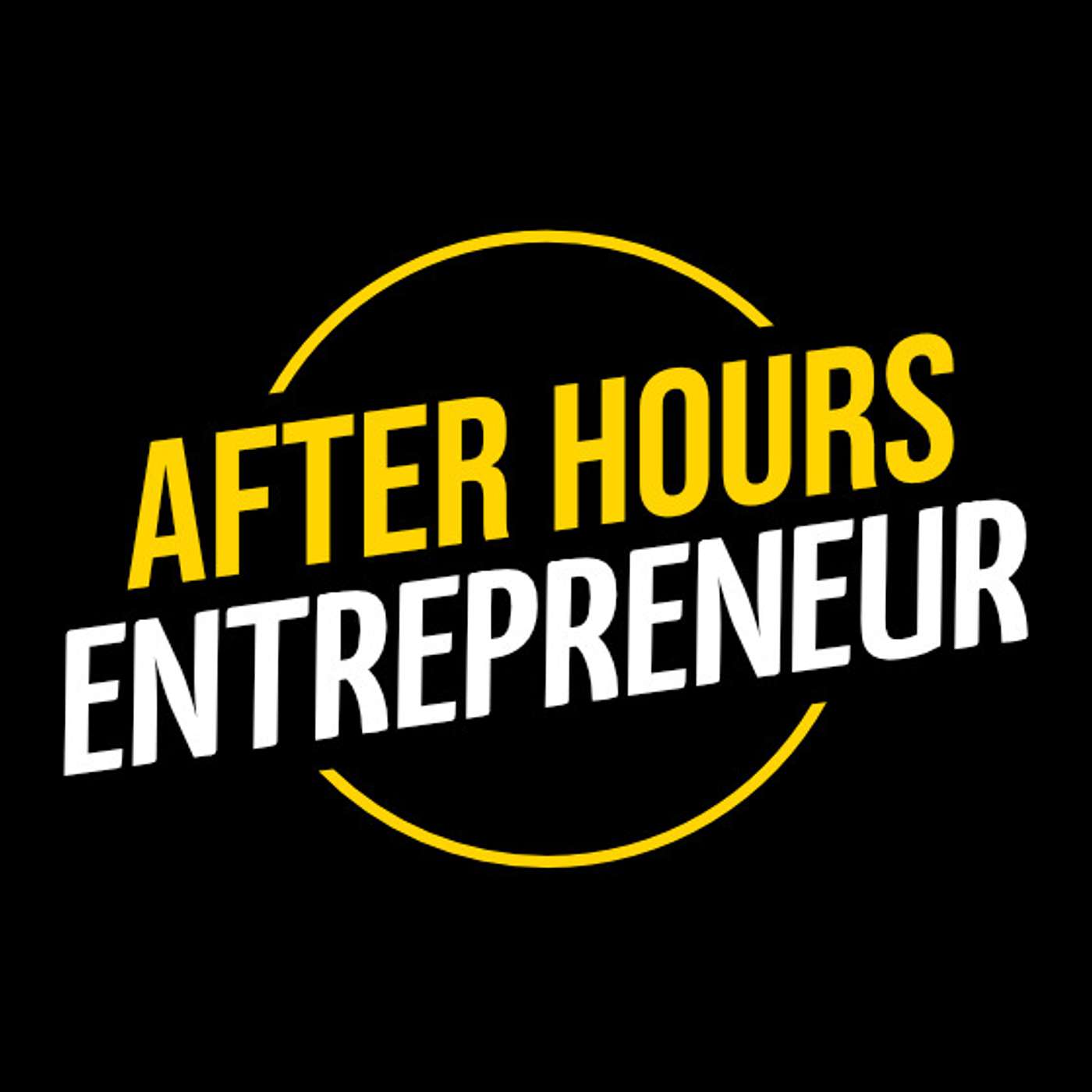
After Hours Entrepreneur with Mark Savant
Mark Savant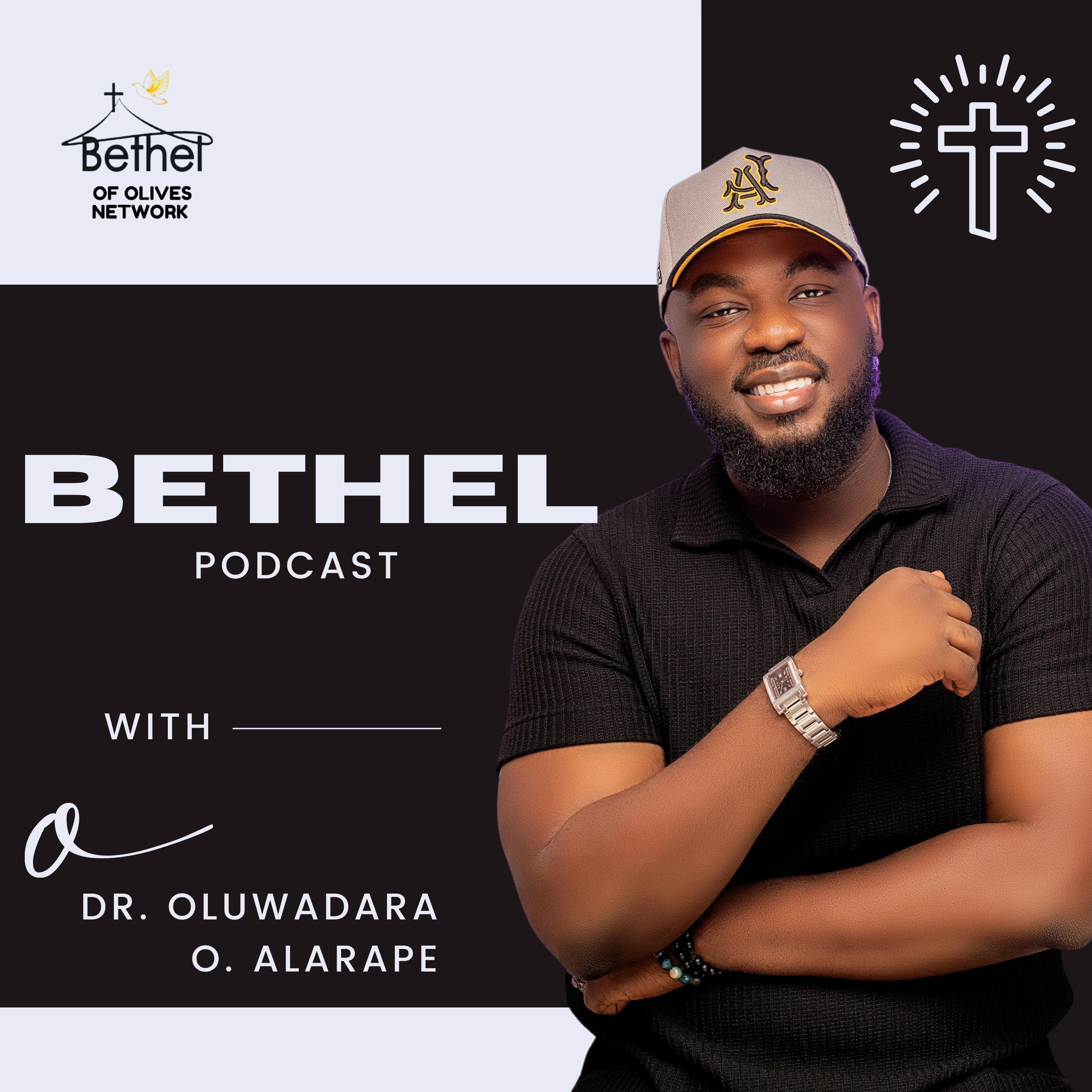
BETHEL
Dr. Oluwadara Alarape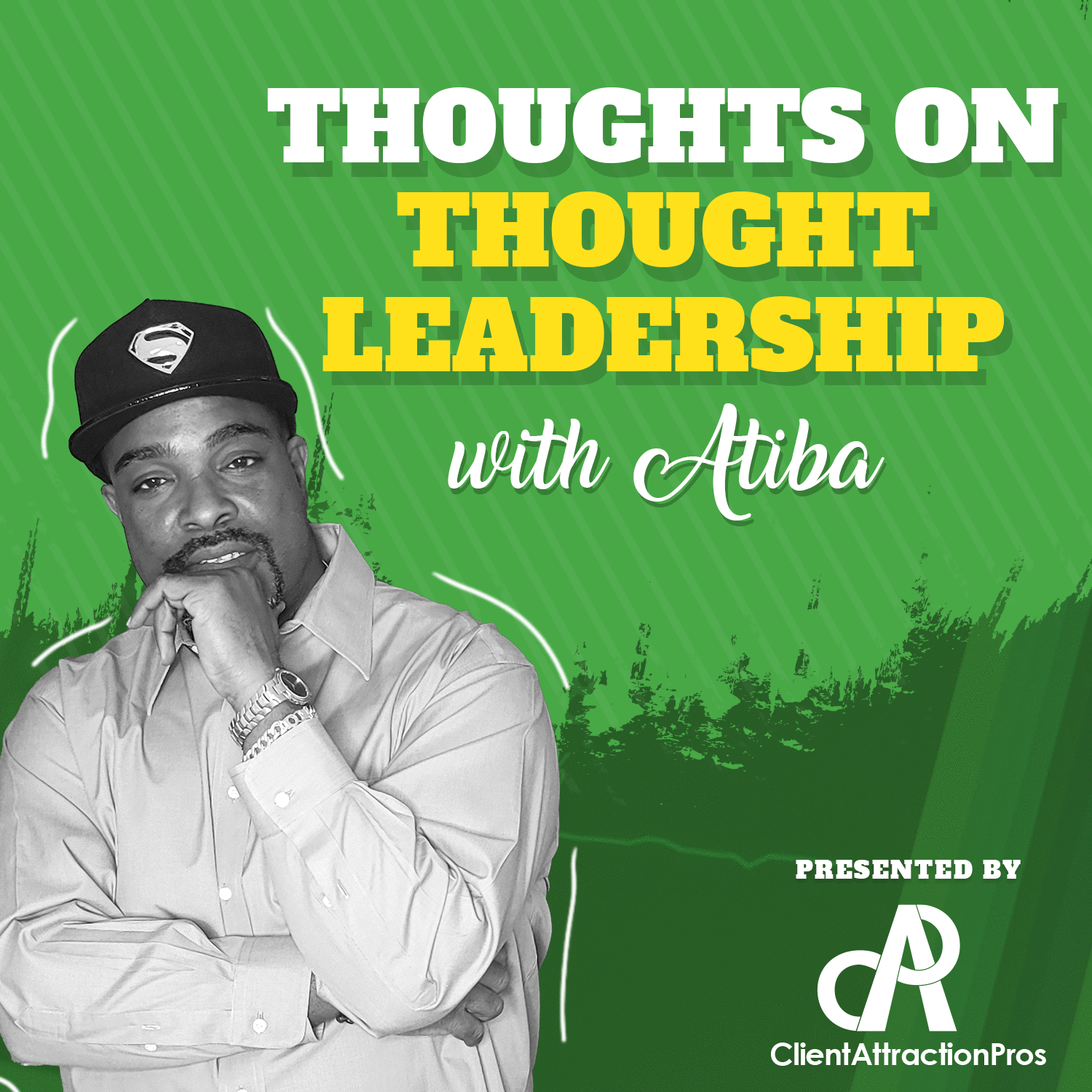
Thoughts on Thought Leadership with Atiba
Atiba de Souza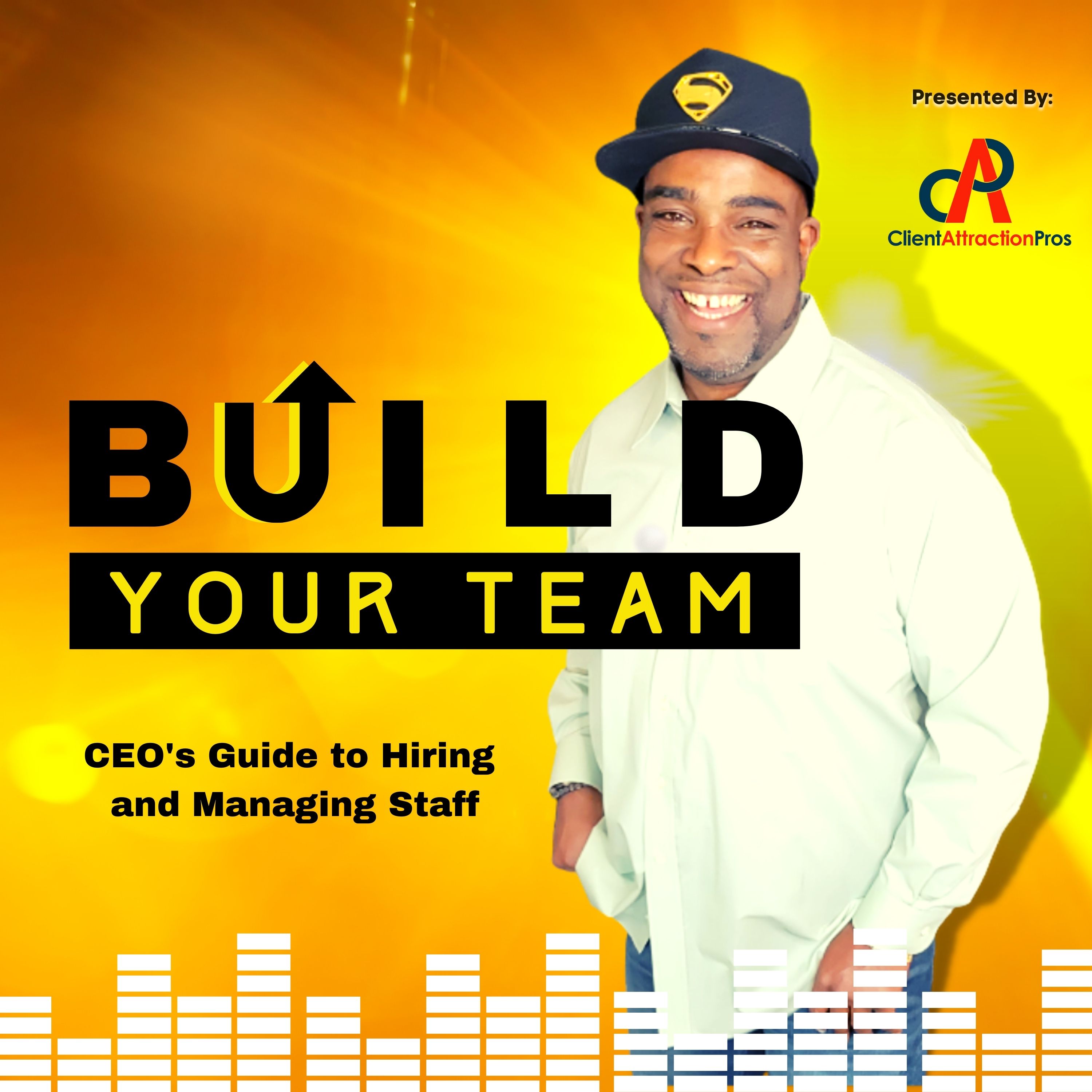
Build Your Team
Atiba de Souza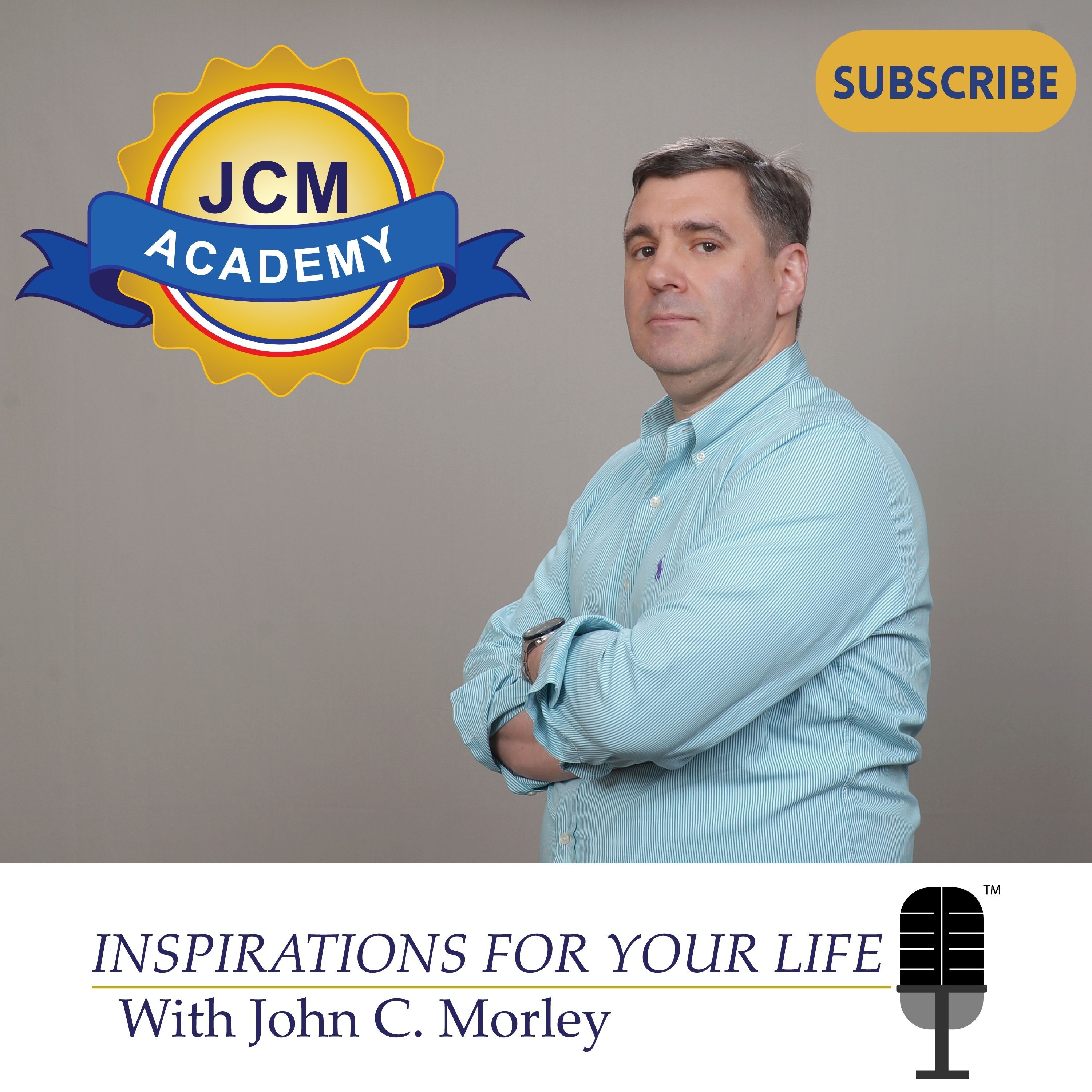
Inspirations for Your Life
John C. Morley, Serial Entreprener
Marketing in the Age of AI
Emanuel Rose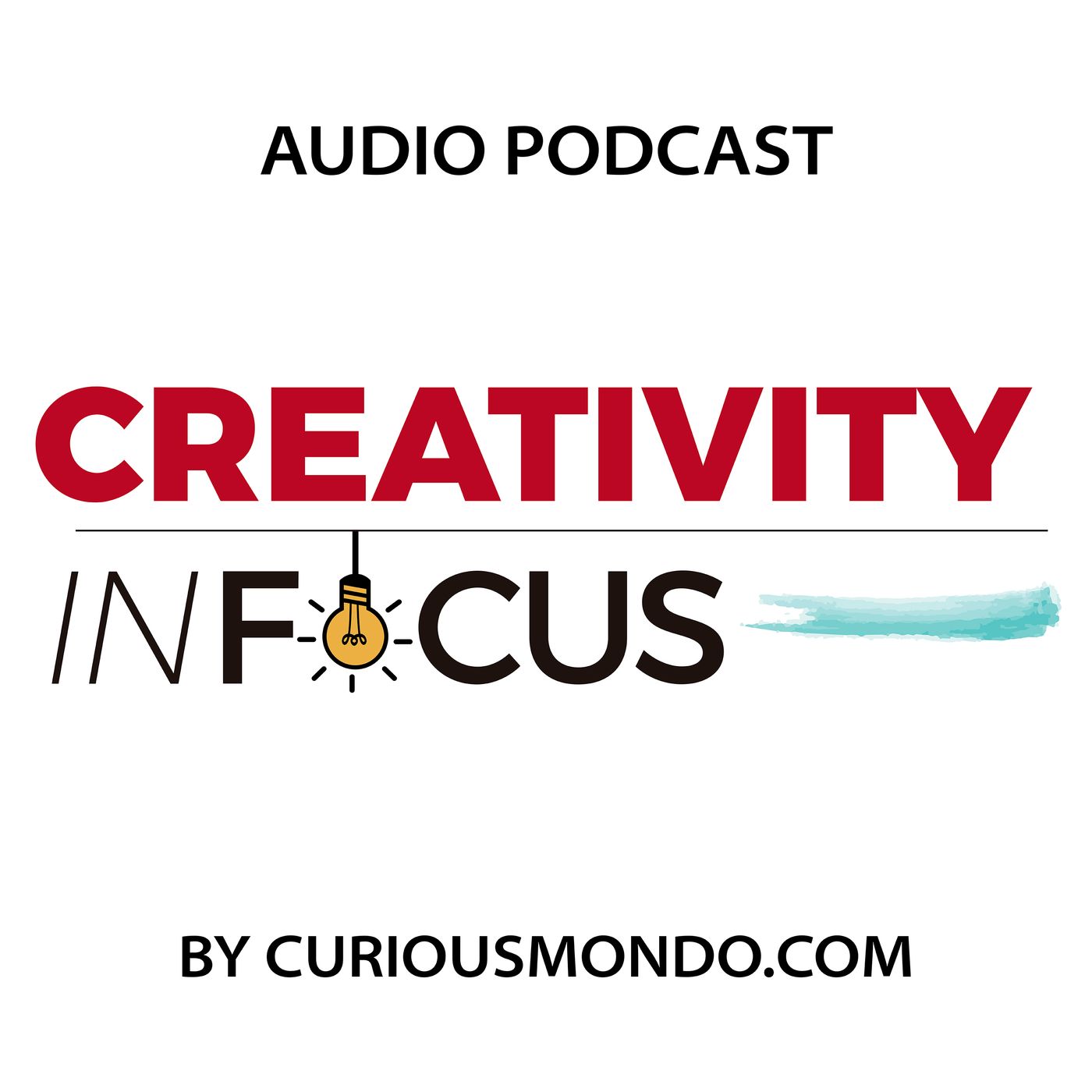
Creativity in Focus - Audio Only
Shahar Boyayan
Make Something Happen with Audrey Wiggins
Audrey Wiggins
The UnNoticed Entrepreneur
Jim James
Music 101
Daniel Lucas / G.Mick Smith
Abstract Poetry
Daniel Lucas
Food 101
Daniel Lucas/Alessandro Panattoni
Abstract Essay
Daniel Lucas /Sal Cosenza
#iesgaherrera28d28sonidos
daniel lucas
El podcast de Lucas Daniel Porra
Lucas Daniel PorraDaily Dose of Dave Podcast
Dave Valentine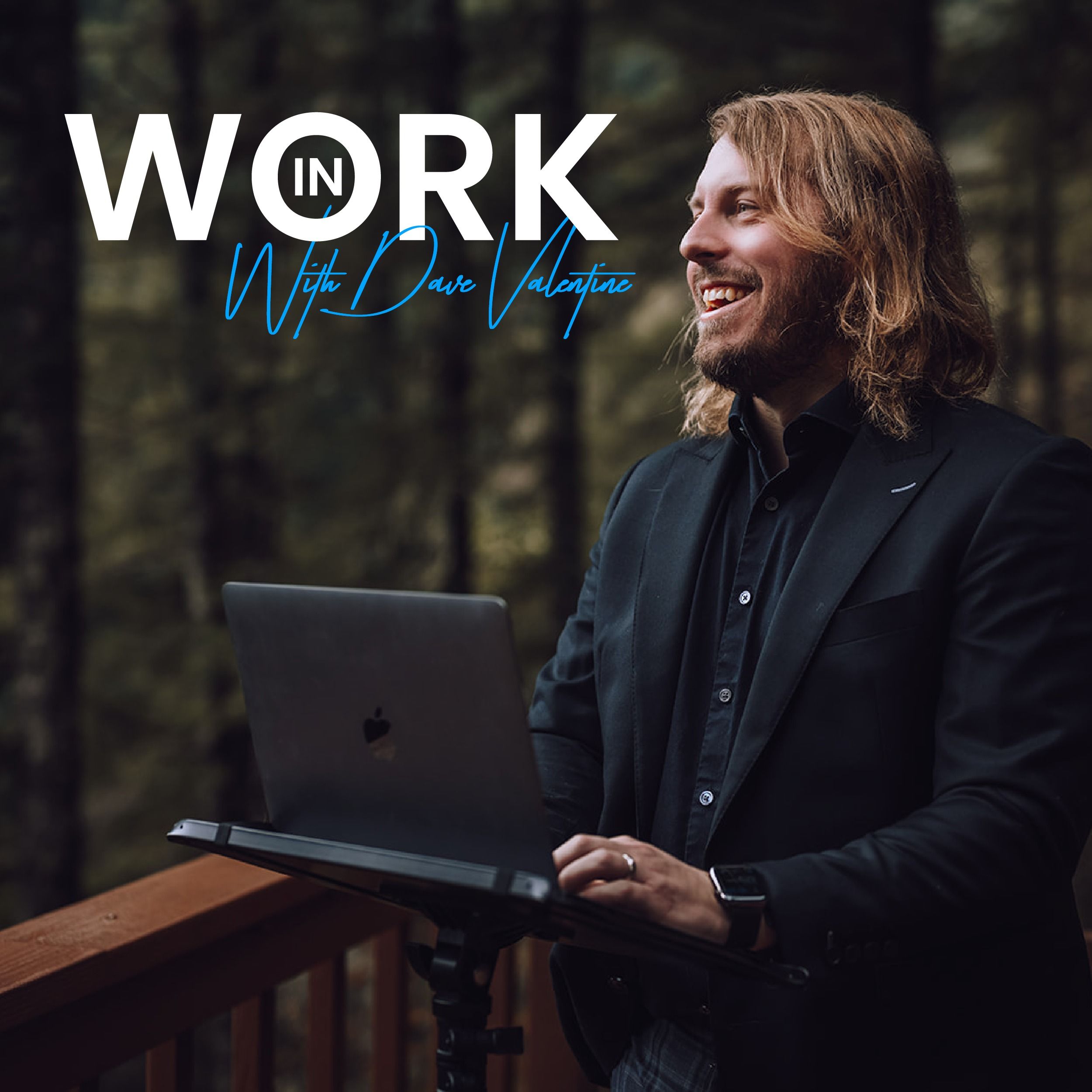
InWork Podcast with Dave Valentine
Dave Valentine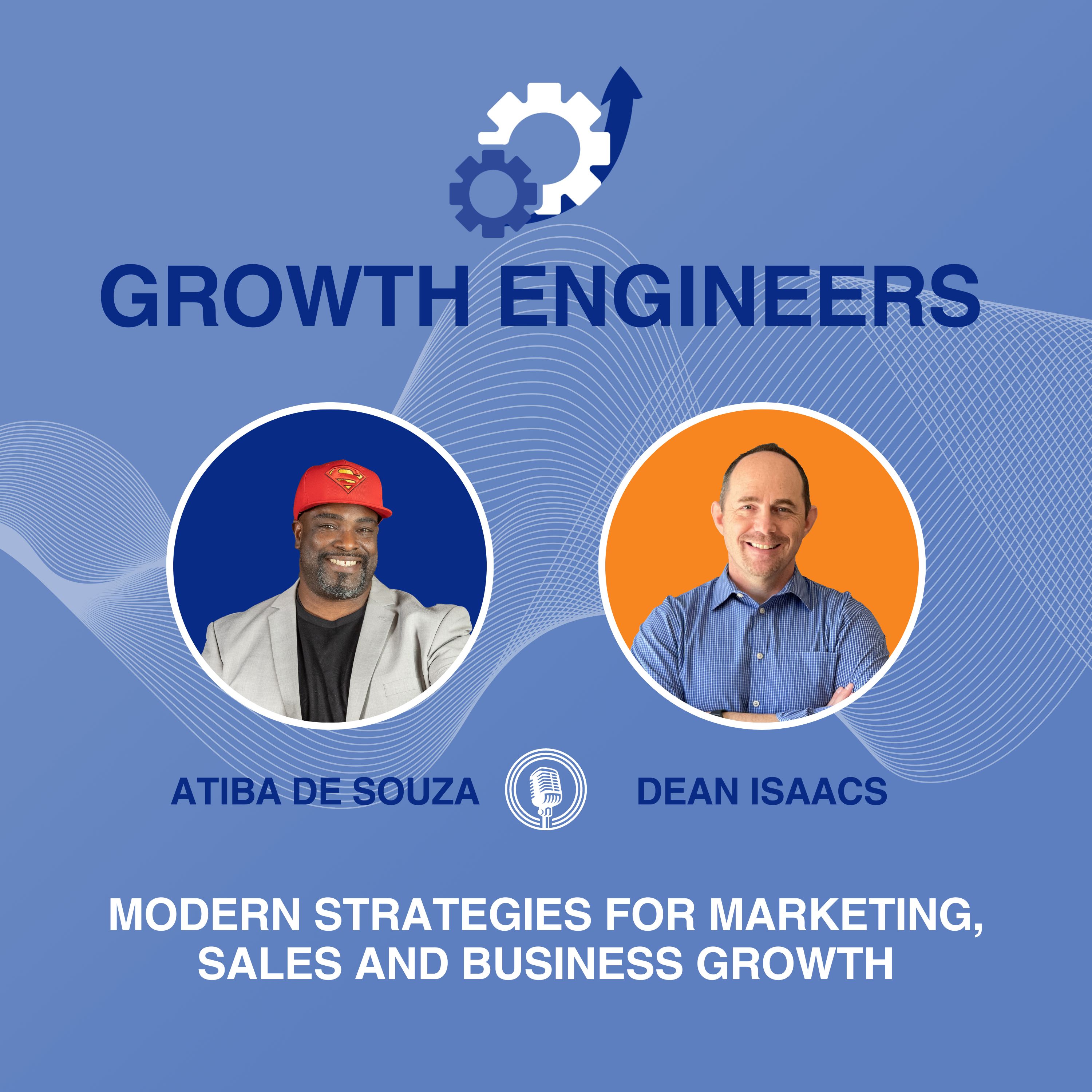
Growth Engineers
Atiba de Souza and Dean Issacs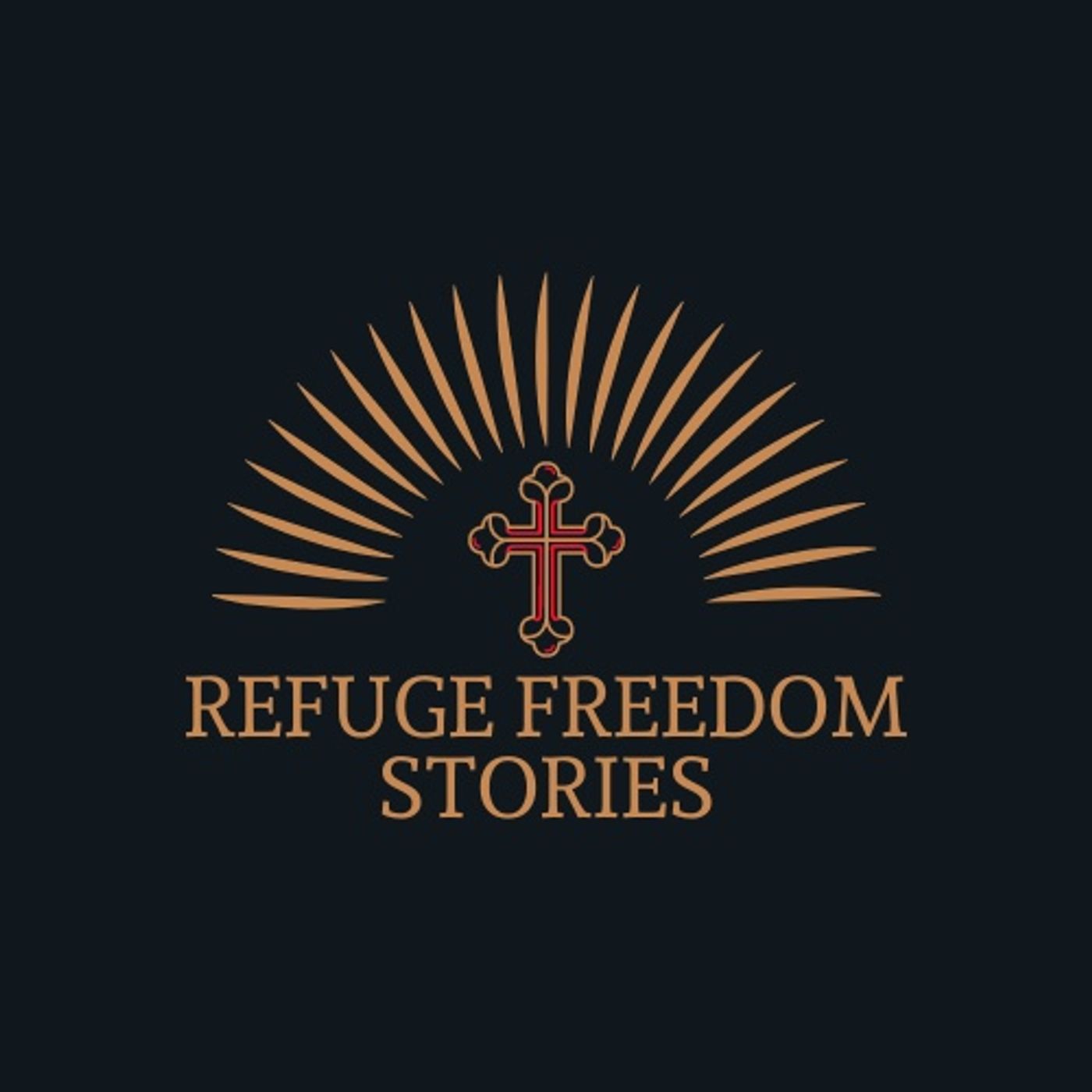
Refuge Freedom Stories
Jonnie Taverner


